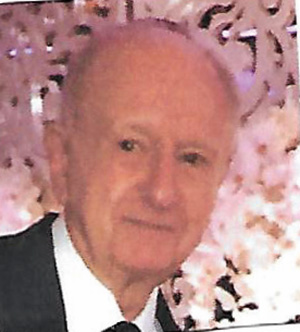
Part 12
(Continued from last week)
German historical research since the 1960s has shown sufficiently that Hitler’s rise to power and success was no accident, or reaction to the establishment of Bolsheviks in the Soviet Union, but had a much deeper grounding in the German history. The dictator not only fooled the German people and overwhelmed them, but he represented much more to them than many had wanted. He carried out what many, even if only partially and for different reasons, had wanted or had hoped he would.
Now what have we learned from this book? What should we think about today’s Germans?
Let us first consider that the book was published in 1988 and can be assumed to have been compiled and written throughout the 1980s. That is 30 to 40 years ago. A generation has died in the meantime. Young people then have matured into adults. Memories and attitudes have been revised.
Let me tell you a little story. When I visited Frankfurt with my wife in 2005 on the invitation of the city of Frankfurt, I did so hesitantly, but willingly, only after Rabbi Genack told me I should go under the condition that I can make arrangements to speak to German students and their teachers about my experience in Frankfurt during the years 1933-1941. I was able to arrange speaking four times in three different cities. More interesting than my own talking were the questions raised by students and teachers after I finished talking in each location.
As if prearranged, the same set of questions were raised in three of the four locations. It showed to me the serious concerns of the students. What does the world think of today’s Germany? I am sure that the questions today would not be much different than they were in 2005.
Their first question was “Do you blame us for what Hitler did to the Jews?” The reply was simple: “No, you were not even born yet.”
The second question was “Do you blame our parents?” Also, an easy question to answer. “No, your parents were probably born in the 1960s, 15-20 years after Hitler’s death.”
The third question: “What about our grandparents?” That became a bit more problematic. Their grandparents were probably born in the 1930s and could have been members in their youth of the Hitler Jungend or the female equivalent BDM (Bund Deutscher Mädels). But in any event, I said no, since as teenagers they were not involved in any policy making.
The last question about their great grandparents presented a challenge to me. They were probably born at the beginning of the 20th century and were therefore in the prime of their life during the Hitler time. What should I reply? As the story above shows, not all Germans, even if they kept quiet about what they saw and heard, were Nazis. Many of them ended up themselves in concentration camps because they ran afoul of Hitler’s programs. I decided to reply, “I cannot be the judge and jury about your great grandparents. Only our God in heaven, yours and mine, can be that judge.” The students seemed to accept that reply willingly as I noticed them nodding to each other in satisfaction.
So, what does this little story add to what we have learned from the book? When the book was written, the author’s judgment was based on existing adulthood 40 years after Hitler’s death. One generation earlier was still probably influenced by what the creeping anti-Semitism of the Hitler era had taught them. Since 1988 a new generation has been born and raised in Germany under new teachings and revised influences. The author’s opinion is biased toward the past, the same as my opinion is biased toward the future.
Is there no anti-Semitism in Germany today? Yes, there still is and there always will be, just like there is anti-Semitism in every other country where Jews live, or even where no Jews live. There always has been anti-Semitism in the world, and there always will be. But we need not fear or despair, as long as it is not government generated or government supported.
By Norbert Strauss
Norbert Strauss is a Teaneck resident and Englewood Hospital volunteer. He frequently speaks to groups to relay his family’s escape from Nazi Germany in 1941.













